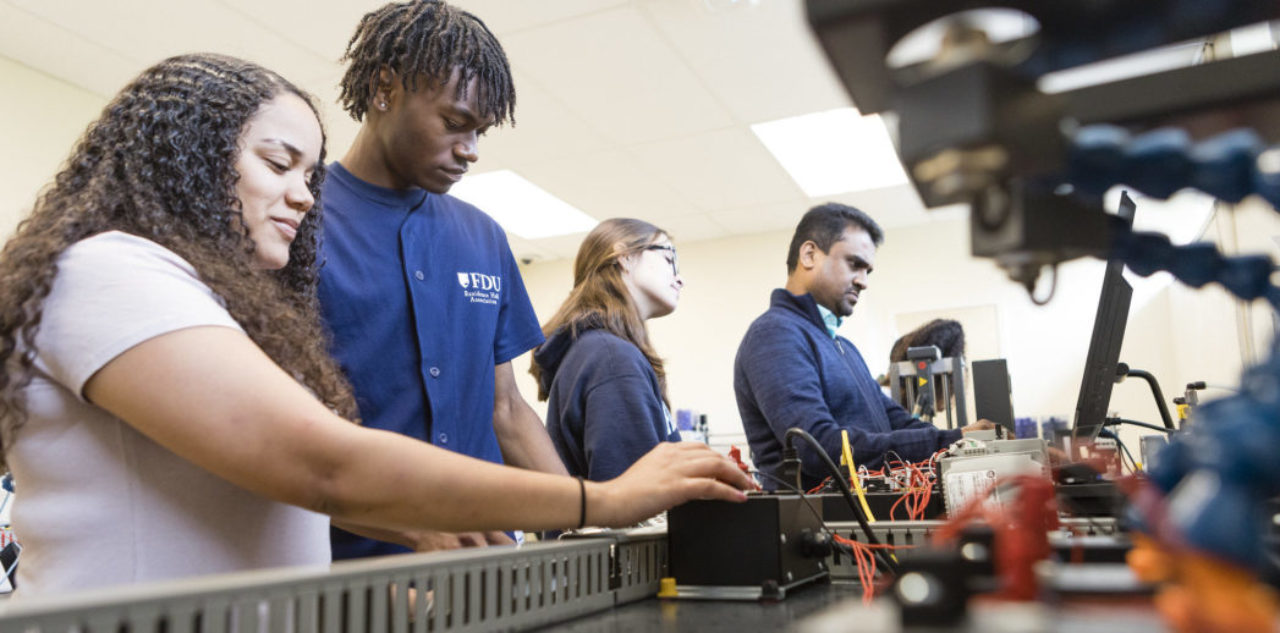Information Technology BS, Computer Science MS: combined degree

The School also offers an accelerated B.S. in Information Technology/M.S. in computer science degree program. This program allows students to complete a bachelor’s and a master’s degree in just five years. The savings in time and tuition are accomplished through a process of cross-crediting 9 undergraduate and graduate credits.
Scholarship – DoD CySP
Students pursuing the BSIT degree program with the Concentration in Security and Forensics are eligible to apply for the prestigious Department of Defense (DoD) Cyber Scholarship Program (CySP). Apart from paying for the full tuition and fees, the Cyber Scholars receive a lucrative $25,000 a year stipend until graduation, guaranteed paid summer internship at the DoD Agency and a job offer on graduation.
Degree Plan
1st Semester (14 credits)
- CSCI1105 Computers & Computer Software
- WRIT1002 Composition I: Rhetoric & Inquiry
- INFO1101 Computer Concepts & Tech
- MATH1105 College Algebra
- UNIV1001 Transitioning to University Life
2nd Semester (14 credits)
- ART1177 Intro to Digital Media
- WRIT1003 Composition II: Research & Argument
- INFO1201 Information Technology
- MATH1107 Pre-calculus
- UNIV1002 Preparing for Professional Life
3rd Semester (16 credits)
- EGTG2210 Technical Communication
- INFO2101 Computer Programming for Information Technologists I
- INFO2105 Internet & Web Applications
- UNIV2001 Cross-cultural Perspectives
- Laboratory Science Elective: Students are required to complete one full-year laboratory science sequence totaling eight (8) credits from the following courses: PHYS2101, PHYS2102 General Physics I & II and PHYS2201, PHYS2202 Physics Laboratory I & II; CHEM1201, CHEM1202 General Chemistry I & II and CHEM1203, CHEM 1204 General Chemistry Laboratory I & II; or BIOL1251, BIOL 1252 General Biology I & II and BIOL1253, BIOL1254 General Biology Laboratory I & II.
4th Semester (16 credits)
- ENGR2286 Digital Systems Design
- INFO2102 for Information Technologists II�(or)
- INFO2106 Web Site Design & Management
- Laboratory Science Elective: See 3rd Semester
- UNIV2002 Global Issues
5th Semester (15 credits)
- CSCI2234 Data Structures and Algorithms
- CSCI2247 Assembly Lang Programming (or)
- EENG2287 Microprocessor System Design I
- ENGR3000 Modern Technologies: Principles, Applications and Impacts
- MATH2337 Applied Statistics I
- IT Technical Elective: Twelve credits must be selected from the approved list of Information Technology Technical Electives listed below. The courses must be approved by an academic advisor. Students can elect to participate in a cooperative educational experience and earn up to three credits.
6th Semester (15 credits)
- CSCI6623 Database Systems
- CSCI6638 Operating Systems
- INFO3201 Human Computer Interface
- INFO3205 Digital Media Publishing
- IT Technical Elective: See Semester 5.
7th Semester (18 credits)
- CSCI3274 Linux System Administration
- CSCI6603 Computer Architecture
- ENGR4210 Management & Engineering Economics
- INFO4101 Data Communication & Computer Networks I
- MATH2255 Discrete Structures
- IT Technical Elective: See Semester 5.
8th Semester (15 credits)
- INFO4201 IT Needs Assessment & Management
- INFO4205 Capstone Project
- INFO4410 Foundations on Cubersecurity
- INFO4844 Programming for Internet
- IT Technical Elective: See Semester 5.
9th Semester (12 credits)
- CSCI6620 Software Engineering
- Graduate CS Electives: A total of three graduate computer science electives (9 credits). All prerequisites must be fulfilled for each course selected. Permission of advisor is required for non-CSCI electives.
10th Semester (9 credits)
- CSCI7645 Systems Programming
- Graduate CS Electives: Any two courses from EENG6601-7852, CSCI 6700-8891, COMM 6001-7098, or MKTG 6601-8850
Technical electives:
Prerequisites must be fulfilled for any course(s) selected.
- ART2255 Basics of Computer Animation
- ART2274 Computer 3-Dimensional Modeling
- COMM2215 Photoshop for Advertisement and Illustration
- COMM2648/2649 Basic Video Editing
- CSCI3251 Design of Software Systems
- CSCI3315 Mobile Application Development
- CSCI3317 Computer Game Programming
- CSCI3331 Advanced Database
- CSCI3338 Advanced Oracle SQL Performance and Tuning
- CSCI3345 Firewalls and Intrusion Detection Systems
- CSCI3380 UNIX Shell Programming
- CSCI3420 Cryptography
- CSCI3460 Data Warehouse and Data Mining
- CSCI4373 Distributed Database Systems
- CSCI4380 Systems Development with Java
- EGTE3288 Microprocessor System Design II
A minimum of 123 credits is required for the BS degree, and a minimum of an additional 21 credits for the MS degree.